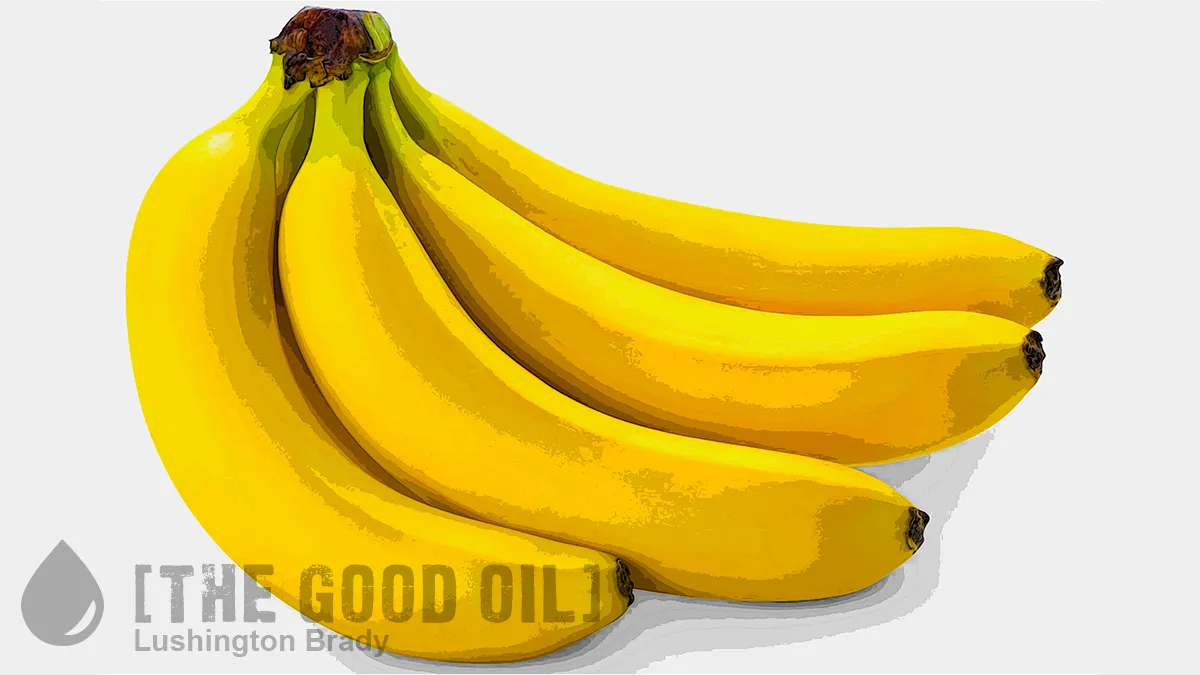Table of Contents
Back when he was still relevant, Paul Keating kicked off an avalanche of pearl-clutching amongst the chattering classes when he warned that Australia was running a “Banana Republic” economy. What he meant was that the nation’s economy was far too dependent on exporting raw natural resources, rather than processing them into value-added goods.
That is, indeed, the economic model of third-world banana republics. Almost anyone can grow wheat or cotton, or dig up ore and one load of ore is much the same as any other. On the other hand, not all manufactured goods are the same. Consumers will pay more for French wines, or German or Japanese cars, rather than Chinese.
Notably, some of the world’s best economies are nations with almost no natural resources – Japan, Israel and Singapore, for example. That’s because these are smart countries that sell their expertise.
Nations achieve high standards of living by having a productive workforce and high levels of investment. Either they produce the goods and services most in demand or import them. The latter route requires a corresponding level of exports. The world’s most traded goods are oil, gas, and petrol; motor vehicles and parts; computers and other IT; pharmaceuticals; aircraft; and medical equipment. Uniquely among ‘first world’ nations, with the exception of gas, Australia has a major presence in none of these.
Over two-thirds of our exports comprise ores, coal, gas, and gold with food accounting for a further 10 per cent. And the share of these and other primary products has tended to rise.
Without these exports our living standards would be at third-world levels.
It’s bad enough that Australian governments and businesses are plainly disinterested in developing local talent. Instead, they rely on high natural resources demand and lazily importing skills.
But it’s even worse – almost suicidally stupid – that a large swathe of the political class, not to mention the chattering classes, are implacably hostile to the only industries keeping us from sinking into the third world.
The miners and farmers responsible for developing and producing these exports are in the sights of the ALP and its associates, the greens and teals.
The latest scalp is that of the Northern Territory uranium mine, Jabiluka […]
Hitting mining, especially uranium mining, and claiming, spuriously, that in doing so some valuable rock art is preserved provided too good an opportunity for the Prime Minister to parade his Green-Left credentials.
The hostility of the ALP, not to mention the even-further left, is a matter of record. Not only have they steadily opposed new mining operations, especially coal, they’ve deliberately funded activists like the Environmental Defenders Office to clog up approvals for decades. As recent court cases show, too, these activists are not above fabricating ‘sacred sites’ in order to give left-wing governments an excuse to reject developments.
Farming, the other industry underpinning the economy, faces its own set of regulatory onslaughts. These include the subsidising of solar facilities that eat into farmland, and squeezing irrigators’ water supplies in the Murray Darling, a province that provides 40 per cent of our agricultural output. Other harm is created by governments slugging Queensland farmers and fishermen with regulations, supposedly to protect a Great Barrier Reef that is in no danger, and by banning the live sheep exports that affluent Middle Eastern markets insist upon.
It’s notable that no one in the current government has ever worked a blue-collar job in mining, farming or manufacturing. In fact, not one current Labor MP has ever held a job not funded by the taxpayer or unions. The Greens draw their MPs and their votes almost exclusively from the innermost suburbs of Melbourne, Sydney and Brisbane. In the bubble they’ve lived and worked in all their lives, the dividends from mining and farming are simply taken for granted, as if they just fall out of the sky.
When Donald Horne called Australia “the Lucky Country”, it was a backhanded compliment. What he meant was that the country was so rich in natural resources that it thrived despite the ineptitude, if not wanton stupidity, of its elite classes.
That luck isn’t going to last forever.







